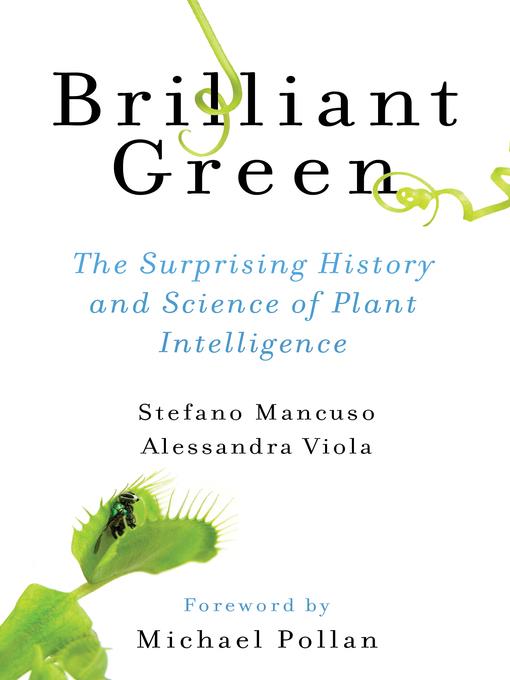
Brilliant Green
The Surprising History and Science of Plant Intelligence
کتاب های مرتبط
- اطلاعات
- نقد و بررسی
- دیدگاه کاربران
نقد و بررسی

February 15, 2015
Presenting an unorthodox view of botany, Mancuso (plant, soil, and environmental science, Univ. of Florence) observes that 99.7 percent of life on earth is plant life, with animals, including humans, making up the remaining .3 percent. Humans cannot live without plants, but plants can live without us, and depend only on the sun. The author states that plants possess our five senses, as well as many others, such as sensing electromagnetic fields and humidity. Plants can respond to external stresses and indeed have intelligence, defined as problem-solving ability. While plants lack brains, eyes, ears, and noses, their roots, leaf parts, mechanosensitive channels (small sensory organs), and each cell have powers to perceive and respond to the environment. Various experiments are described, such as playing music of particular frequencies to grapevines that then ripened earlier and produced grapes richer in flavor and color than others. Plants also supposedly repel insects by sending out chemical substances to make leaves unappetizing and indigestible. The author believes that human intelligence is quantitative, not qualitative, and explains that a sizable literature even exists on bacterial intelligence. Many plant scientists disagree with the premises of the author's field of plant neurobiology. Several references online question these views, although Mancuso receives funding from Italian sources for his International Laboratory of Plant Neurobiology in Florence. VERDICT Readers with an academic background in botany on an undergraduate or graduate level may find this volume provocative. It may be misleading for other readers and contrary to the observations of many gardeners. Who can predict, however, whether these revolutionary scientific views will gain future acceptance?--Judith B. Barnett, Univ. of Rhode Island Lib., Kingston
Copyright 2015 Library Journal, LLC Used with permission.

























دیدگاه کاربران